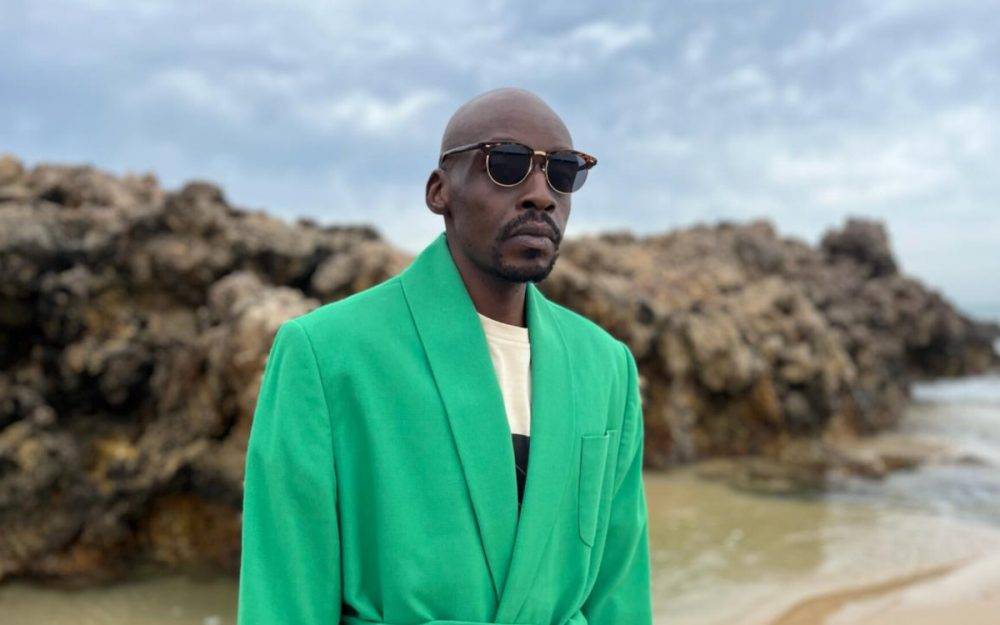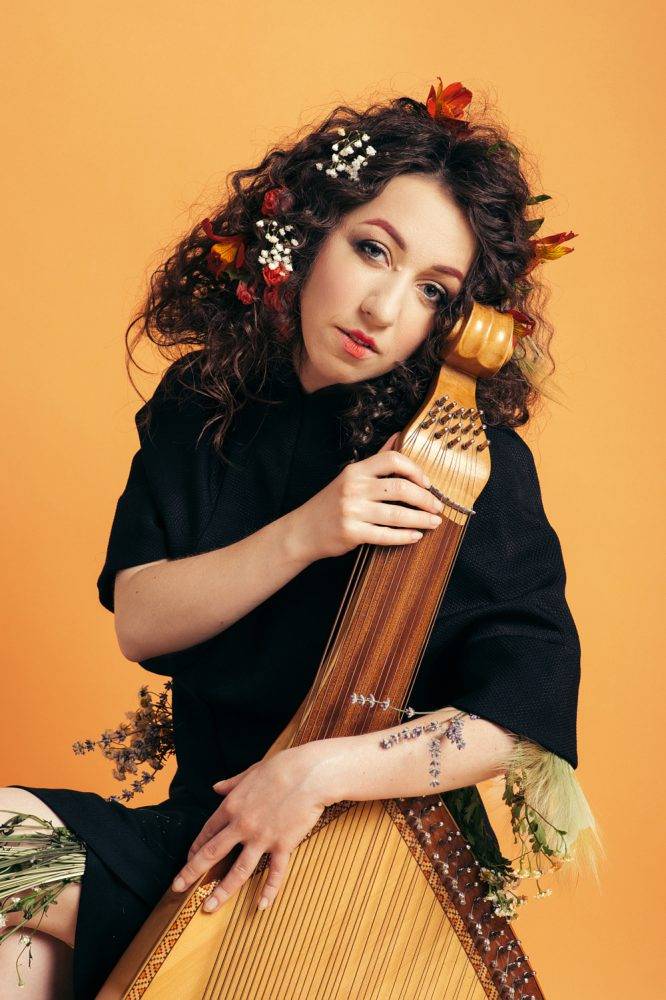Muisician and performance poet Itai Hakim with Ukrainian musician Anastasiya Voytyuk at the Nirox Foundation.
These South African and Ukrainian musicians definitely think so
Itai Hakim is a poster child for a cultural exchange programme.
Listening to him speak, it is clear what can be accomplished when true minds meet.
These revelations seem to dawn on him, too, as the conversation warms up.
“I just really appreciate the fact that there’s a consideration for this kind of bilateral relationship in quite tense times,” he says sincerely.
A musician and performance poet, Hakim was until recently an artist in residence at the Nirox Foundation in Johannesburg, alongside fellow South African artists Tubatsi Moloi, Aus Tebza, Modise Sekgothe, Mpumi Mama Drum, and veteran Ukrainian musician Anastasiya Voytyuk.
 Itai Hakim.
Itai Hakim.
The artists lived together for three weeks and shared a studio space where they could collaborate on projects and engage in cultural fellowship.
The residency formed part of an initiative to raise awareness about the plight of Ukraine’s war-afflicted citizens, in particular the thousands of children who have been illegally deported to Russia.
Itai Hakim’s roots
Hakim’s work over the past decade is deeply embedded in his Tshivenda and Xitsonga roots, and he is obviously aware of the transformative power of art. Still, even for him, the past few weeks have been revelatory.
Known for fusing languages and cultures ancient and modern, Hakim currently teaches arts and literacy as a form of life skills to children in Gqeberha. His bio describes him as “a multifaceted musician and performance poet”, who “embarks on a transformative journey to reshape folklore and storytelling”.
It says he has adopted: “… an inventive fusion of Afro-blues and indie jazz … underscored by his adaptation of traditional folk plucking techniques … that effortlessly bridges the classic with the avant-garde.”
Ukrainian folk connection
He lights up when he describes his encounters with Ukrainian artists, in particular at the Free the Children concert hosted by the Nirox Foundation on Human Rights Day.
“I was very pleased to discover I had an interest in other folk instruments in the world that I knew very little about. Listening to the string tonality of the bandura kind of reminds me of a harp, but it’s not a harp, it’s not a guitar, it’s somewhere in between. Listening to Anastasiya sing kind of reminds us that in every culture there is song, there is instrumentation … that every culture seems to organically create within itself.
“I’m particularly invested in the future of kids … So, to be a part of a programme that focuses on their future was something that I felt very privileged to be a part of, and I’ve started seeing my practice as something I could use as a tool to kind of contribute to the conversation around children.”
Anastasiya Voytuk
It’s no surprise that Hakim should find Anastasiya Voytuk’s music so moving.
 Anastasiya Voytuk.
Anastasiya Voytuk.
Like him, she is undeniably cosmopolitan and possesses a broad range of artistic gifts and interests. Voytuk heads the Ukrainian folk fusion band Troye Zillia, which has revived the country’s traditional music.
Voytuk, who performed at the Free the Children concert, has travelled all over the world, playing the Ukrainian bandura with jazz drums, keyboards, synthesisers, and, more recently, the bass and clarinet.
She has also produced soundtracks for several plays and performances, with which she travelled to Canada and Lebanon.
Music shatters boundaries
One of her international projects saw her take part in the Global Music Workshop at the New England Conservatory in Boston, where she collaborated with 70 musicians from across the world.
She knows all too well about the boundaries that music can shatter.
Voytuk remembers her own youth in the Soviet Union and how learning songs from other cultures helped overcome barriers.
“I remember things from my childhood, which built a good attitude toward Polish people, even toward Russian people, because we were cooperating when I was a small kid.”
She believes the arts can help guide her country through its current turmoil.
Support your own culture
Having lived through an era when her own community was and continues to be marginalised, she is familiar with what it takes to restore the battered pride of a people.
Her message to black South African artists, in particular, is to build organisations that support their culture.
“This is what I would also like to say to artists here in South Africa, to black artists of this generation: you need to become stronger. Only you can do this.”
But perhaps her most poignant lesson is imparted almost inadvertently.
Voytuk noted that at the concert on Human Rights Day, it became clear, through the diverse array of songs, that we have “many similarities … because ancient tunes, they usually were built on a couple of notes”.
This implies that the idea of a common humanity is more than an ideal; there is actually an ancient precedent for it.
The fact that Hakim and Voytuk have been able to merge such seemingly disparate musical styles and find a receptive global audience suggests that the co-existence of those peculiar worlds is more possible than ever, even in these fractious times.
Possible album
The artists are determined to continue collaborating beyond their residency, especially after hearing stories about children who were abducted and illegally deported to Russia.
They’ve started discussions about a possible album. Hakim, in particular, has been deeply moved after hearing Oksana Pisarev, a psychologist from the Voices of Children from Ukraine, speak at a dialogue hosted by the Democracy Works Foundation, the Nirox Foundation and the Arts and Culture Trust at Constitution Hill on 12 March.
Hakim hopes that proceeds from future projects will go towards supporting those innocent victims of war.
“The more we interact as artists, I think the greater understanding and the greater basis for solidarity and unity is possible,” Hakim said.
“I think that the experience of cultures meeting, of people and cultural representatives from different communities meeting, is a most significant thing — one that needs to be repeated.”